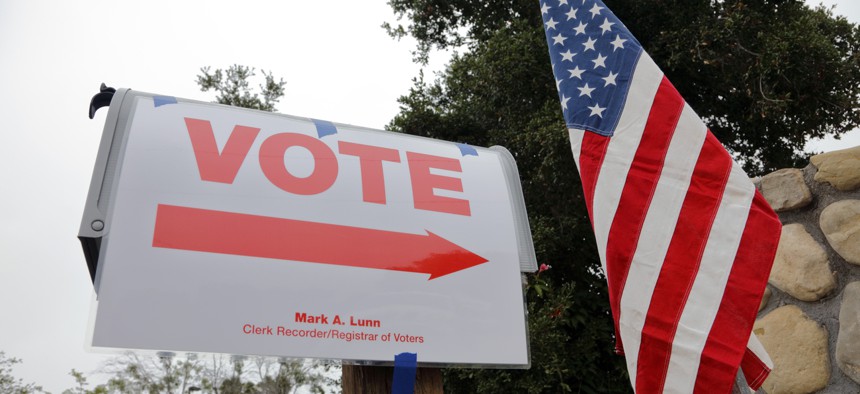
Joseph Sohm/Shutterstock.com
Senate’s Election Security Funding Bill Leaves a Key Agency Strapped for Cash
The Election Assistance Commission has struggled with insufficient staff and resources.
The cash-strapped, understaffed federal agency responsible for promoting voting machine security standards and best practices for election administration will receive very little new funding under a Senate appropriations bill aimed at bolstering election security.
Bowing to pressure from Democrats and some Republicans, Senate Majority Leader Mitch McConnell last week reversed course and said he would support legislation aimed at preventing foreign interference in U.S. elections. On Sept. 19, the Senate Appropriations Committee reported out the “Financial Services and General Government Appropriations Act of 2020” (S.2524), which includes funding for $250 million in election security grants for state and local election administrators. But the bill includes almost no new funds for the Election Assistance Commission, the severely understaffed and underfunded agency that serves as a clearinghouse for information about voting machine security standards and administrative best practices.
Under the Senate legislation, EAC would receive $11,995,000 in 2020, about $2 million more than it received in 2019, however $1.5 million of that would be transferred to the National Institute for Standards and Technology to develop voluntary state voting system guidelines, and another $2.4 million is designated for the EAC’s relocation to new offices.
A spokeswoman for EAC said she could not comment on pending legislation or provide details about the agency’s relocation. The commission may ultimately receive more than the Senate bill allocates. H.R. 3351, which passed the House in June, would designate $16,171,000 for the commission, and the differences will have to be ironed out in conference legislation.
EAC is an independent, bipartisan commission created to implement the 2002 Help America Vote Act, but for years it has struggled with insufficient funding and Congressional support. In fiscal 2018, for the first time since 2010, Congress made resources available through the Help America Vote law to support federal election improvements. That year, EAC received $380 million to help states and localities with their election infrastructure and administration.
In a recent report, EAC’s inspector general noted that the commission’s budget for salaries and administration has declined from a high of $18 million in 2010, to just $8 million in 2019.
To prepare for the 2020 elections, EAC is offering technology training to election officials, testing and certifying voting systems, and helping states use their appropriated funds to beef up security.
“There is no shortage of ambition at EAC when it comes to supporting this work, but there is a stark shortage of funds for such activities,” the EAC commissioners wrote in a joint statement to the Senate Rules and Administration Committee in May. With a staff of 22, the commission has fewer than half the number of employees it had in 2010. As a result, the commission does not have full-time staff devoted to key security initiatives and is unable to develop a cyber assistance unit that many state and local jurisdictions have requested.
“I think this [bill] is a realization that EAC holds promise and they need to get the house in order and kind of prove to Congress that they are able to make use of these funds efficiently,” said Matt Weil, director of the Elections Project at the Bipartisan Policy Center.
NEXT STORY: Senate Confirms Scalia to Be Labor Secretary







